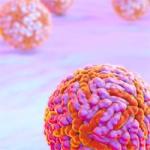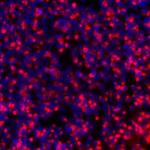
Research Topics
Dr. Tofilon's research is aimed at understanding the molecular determinants of cellular radiosensitivity with the ultimate goal of developing target-based radiosensitizing agents.
An ongoing project involves radiation-induced gene expression, which has been generally considered to be the result of modifications in transcription. However, our recent studies revealed that radiation induces changes in gene expression not by modulating transcription, but through regulating the translation of existing mRNAs. Studies are presently aimed at understanding the mechanisms mediating the radiation-induced translational control of gene expression and whether this process provides a source of targets for tumor specific radiosensitization.
An additional project focuses on the radiobiology of glioblastomas (GBMs) specifically addressing the influence of the brain microenvironment. These studies involve the use of GBM stem-like cells isolated from human surgical specimens grown in vitro and as intracranial xenografts.
Biography
Selected Publications
- Lü X, de la Peña L, Barker C, Camphausen K, Tofilon PJ. Radiation-induced changes in gene expression involve recruitment of existing messenger RNAs to and away from polysomes. Cancer Res. 2006;66(2):1052-61.
- Jamal M, Rath BH, Williams ES, Camphausen K, Tofilon PJ. Microenvironmental regulation of glioblastoma radioresponse. Clin Cancer Res. 2010;16(24):6049-59.
- Hayman TJ, Williams ES, Jamal M, Shankavaram UT, Camphausen K, Tofilon PJ. Translation initiation factor eIF4E is a target for tumor cell radiosensitization. Cancer Res. 2012;72(9):2362-72.
- Rath BH, Fair JM, Jamal M, Camphausen K, Tofilon PJ. Astrocytes enhance the invasion potential of glioblastoma stem-like cells. PLoS One. 2013;8(1):e54752.
- Hayman TJ, Wahba A, Rath BH, Bae H, Kramp T, Shankavaram UT, Camphausen K, Tofilon PJ. The ATP-competitive mTOR inhibitor INK128 enhances in vitro and in vivo radiosensitivity of pancreatic carcinoma cells. Clin Cancer Res. 2014;20(1):110-9.
Related Scientific Focus Areas
This page was last updated on Tuesday, September 10, 2024



